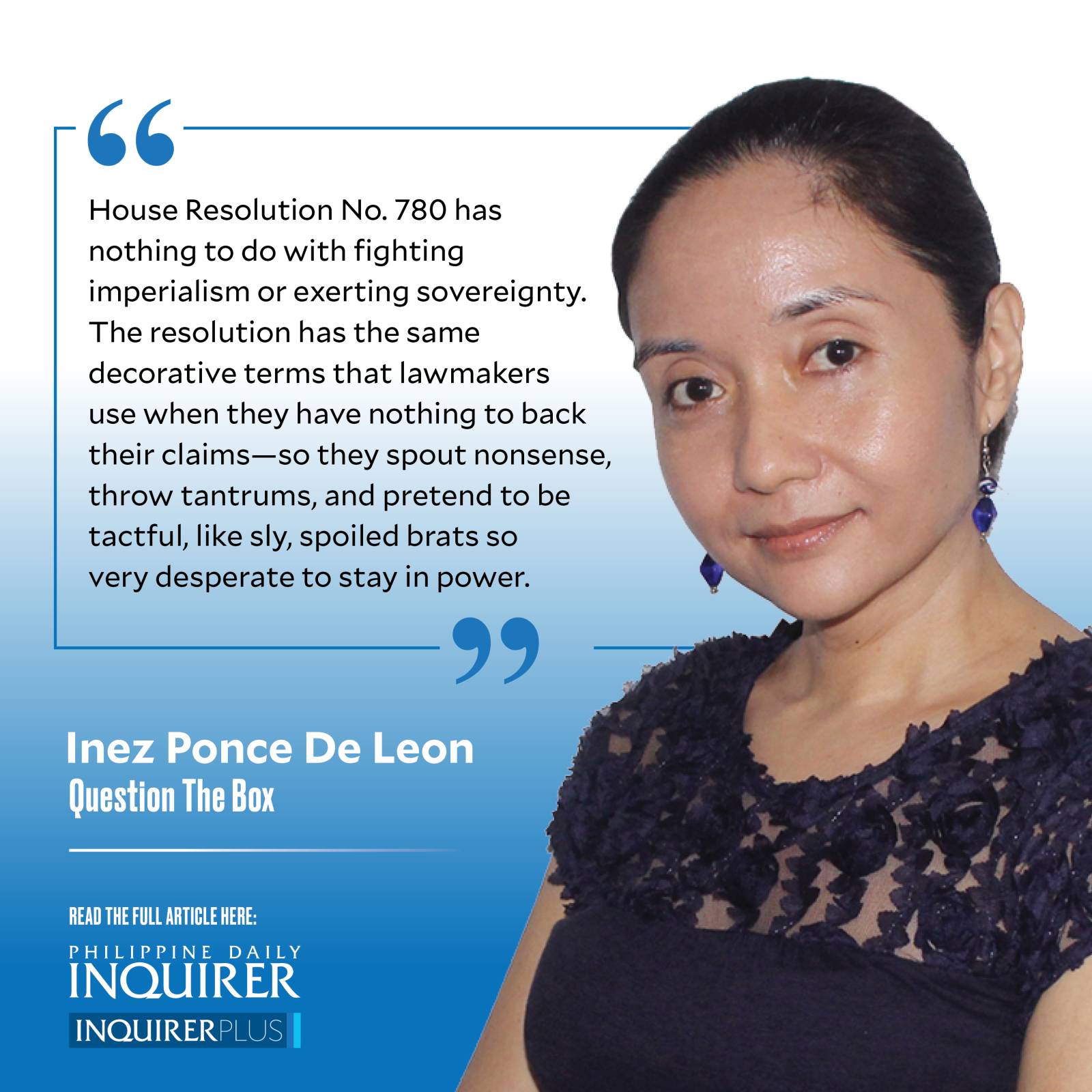Desperate defense on what data?
Last week, former president Gloria Macapagal Arroyo (GMA) and other lawmakers filed House Resolution No. 780, seeking to defend former president Rodrigo Duterte from the International Criminal Court’s (ICC) investigation.
The justification: The country’s judicial system is good enough, and Duterte worked effectively against illegal drugs, criminality, insurgency, and corruption, which encouraged foreign investments.
Article continues after this advertisementGrandiose claims should prompt only one action: Look up the numbers.
Investment stats are easy to find. Various websites show that foreign direct investments rose annually from 2010-2017, before dipping steadily. What investments are the lawmakers talking about?
Next, the heart of the investigation: The drug war.
Article continues after this advertisementWhen Duterte took office in 2016, he made the overblown vow to solve the drug problem in mere months. Six years later, thousands are dead in the wake of his drug war. The upside, government data say: In 2019, only 1.67 million people used drugs, which is lower than the 5-percent global average.This is a useless comparison. If Duterte wants to boast about eliminating the drug problem, then there should be publicly available data to show that the number of drug users in the Philippines declined during his term.This data should be easily searchable—but what should have been my straightforward online hunt turned into a three-hour exercise in near-futility. Data were scattered, difficult to compare, hard to trust. There was no centralized, well-gathered, transparent, easy to find, and free site that nuanced the different variables of drug use (age of first use, drug of choice, demographics, etc.).
In contrast, there’s nida.nih.gov for the United States, ndarc.med.unsw.edu.au for Australia, and digital.nhs.uk for the United Kingdom. Now, don’t give the excuse of the Philippines being a Third World country. If the government genuinely sees drugs as a problem, then it should have invested in drug use-related research.
Locally, a Dangerous Drugs Board (DDB) study is detailed, but doesn’t say much: From 2011-2013, roughly 3,000 addicts went to government rehab facilities. These numbers soared to over 4,000-6,000 in 2014-2016, then dropped in the years that followed.
What does this mean? Not much. Maybe a few thousand people wanted to change, or feared for their safety outside the facility. These numbers say nothing about the effectiveness of the drug war.
A 2004 study reported international figures: 1.8 million Filipinos used drugs. Approximately the same numbers showed up in 2016, then in 2019—only this time, the DDB credited the drug war for the figures. But were the numbers ever dramatically high to begin with?The DDB study also said that the majority of their respondents were aware of the government’s antidrug campaign, and felt that the drug situation is improving. But how else would you answer if you knew that the DDB, a government agency, is interviewing you?
Has the drug war indeed fostered an environment of safety? On the contrary, the Duterte administration’s crude rhetoric has led to careless Red-tagging in a bid to “protect the country from communists.” People with legitimate concerns about governance or those living amongst the poor are stigmatized by those desperate to legitimize their position.Today, the ICC investigation is suspended, but it is about to (and should!) recommence because the courts are not satisfied with the government’s actions. GMA, her minions, and the Chief Executive are mouthing the same spiel: We have a good judiciary, we need no assistance from former imperial powers.Actually, we do need assistance: in getting data together, in acknowledging what we can’t and didn’t do—in acknowledging that the government prizes fancy speeches rather than working from actual evidence. Some examples: Leila de Lima is still detained, despite witness after witness retracting their testimonies. Doctors and professors are arrested with no legal basis. Activists are killed with no proof of wrongdoing.
HR 780 has nothing to do with fighting imperialism or exerting sovereignty. The resolution has the same decorative terms that lawmakers use when they have nothing to back their claims—so they spout nonsense, throw tantrums, and pretend to be tactful, like sly, spoiled brats so very desperate to stay in power.
















